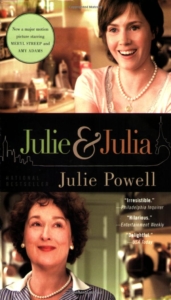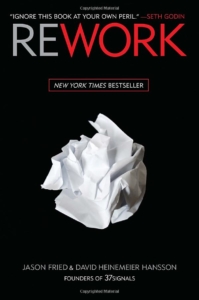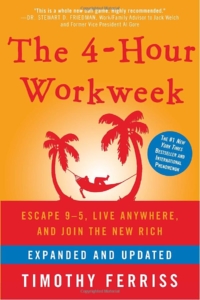Before I talk about turning your blog into a book, I want to make one thing perfectly clear:
You don’t need a blog to write a successful book.
At Scribe, we’ve helped thousands of Authors write and publish books, and I’ve seen plenty of those books make a lot of money without a blog. So if you don’t have a blog, don’t build one just to write a book.
That said, I did turn my own blog into a series of New York Times bestsellers, and I’m happy to share my advice on how to do it.
So, if you happen to have a blog already, this post will give you a step-by-step guide on how to turn it into a book. I’ll also give you several examples of other people who turned their blogs into books.
5 Steps to Turn Your Blogging into a Book
If you already have a blog, you have a few things going for you when it comes to writing a book:
- A pre-existing audience
- A marketing machine (with new readers as the blog grows)
- A general direction for your book
- A library of content to work with
Having an audience that already knows you and loves your writing is a huge advantage. If you use that asset wisely, you’ll be way ahead of the game.
But that’s only one part of the formula.
The truth is there’s a lot of distance between a blog and a published book. It’s NOT just a matter of having a certain word count.
You have to know why you’re writing a book.
Now, I know what you’re thinking. You’re thinking you’re writing your book to monetize your blog and make more money, right?
I’m sure that’s true—but it’s not the “why” I’m talking about.
Before you can start turning your blog into a book, you need to think out what, specifically, you want your book to do for your readers.
1. Decide WHY you’re writing your book
If you’ve been blogging consistently for a while now, you’ll probably have more than enough words for a book. It can be extremely tempting to cram all those posts into a book and call it a day.
Do NOT do that.
You’ll end up with a disjointed mess. Here’s the thing about blogs:
People expect each individual blog post to stand on its own.
Even if your blog has a consistent angle or topic (which it should if you want it to grow), each post is unique, and your readers are fine with that.
But people expect a book to do more. Your new book needs to:
- present a coherent whole
- do something specific for the reader
- provide them something they can’t get for free on your blog
For example, if you want to turn your blog into a how-to book, that book needs to teach people how to do something specific. It needs to walk them through the process step-by-step. Readers have to be able to follow your process from beginning to end and achieve that change in their lives.
If you want to turn your blog into a memoir—or a book of stories about your life, like I did—that book needs to present a coherent experience for the reader.
And, in both cases, your book should include content that isn’t on your blog, so your readers are getting something new when they buy the book.

It’s tempting to take your blog and try to force it into a book, but that’s the wrong order to work in.
You have to figure out the right book first and then look through your blog for material that can go into it.
How do you figure out the right book? By understanding exactly who you’re writing it for and what you want them to get out of it.
2. Figure out your book’s positioning
One of the easiest—and simultaneously hardest—things about turning your blog into a book is putting your reader first.
It’s the easiest because, if you’ve been blogging successfully, you’ve been writing for your readers the whole time. That’s how you’ve built an audience—by consistently giving your readers something they want.
But it’s also the hardest because writing a book is a ton of work, and it’s human nature to want to make it easier. That’s one reason why it’s so tempting to try to cram your blog into a book.
If you find yourself doing that, stop. Don’t try to make writing your book easier for you. Instead, focus on making the finished product better for your reader.
Your book has to be FOR THEM. That’s the only way to write a great book.
So before you do anything else, you have to figure out:
- who, exactly, you’re writing for, and
- what you’re trying to give them with your book.
Who are you writing your book for?
Before you say “everybody,” or even “everybody who reads my blog,” let me stop you right there.
You need to be more specific than that.
It might sound counterintuitive, but the more narrowly you define your target audience, the more successful your book will be.
You need to know exactly who you’re writing to. If you’d like some help with that, read my post on defining your audience and creating a reader avatar.
Now, what do you want to give that reader?
Once you know exactly who your reader is, your next step is to figure out exactly what you want to do for them.
Why is that so important? Because there’s only one reason a reader buys a book:
For what they’re going to get out of it.
That’s it. That’s the only reason.
Maybe they’re going to learn how to do something or make a change in their life. Maybe they’re just going to laugh a lot and forget their problems for a while—entertainment can definitely be something a reader expects to get from a book.
Either way, you need to know what you’re offering that specific reader avatar. And you need to write your book with the purpose of giving them that one thing.
If you do that, your book has a chance of being a huge success. If you don’t, it doesn’t.
For tips on figuring out exactly what your book should offer your specific readers, read my post on how to position your book in the market.
3. Outline your book
Now that you know who your book is for and what it’s going to do for your readers, it’s time to outline it.
Chapter by chapter, your outline should flow naturally from your positioning—aka what your book is trying to accomplish for your readers.
A how-to book will include step-by-step instructions to help your readers learn how to do whatever it is you’re teaching, or how to achieve the transformation that the book offers.
A memoir will help people learn about their own life through yours. It will provide your readers with a coherent, intentional experience.
In either scenario, choose the best content and organize it in the best way to give that to your readers.
I do NOT mean “choose blog posts from your blog.”
I mean you should decide on the best content to put in your book—the best content to achieve the book’s purpose for your readers—as though you were starting from scratch. Because you are.
You have to put your readers first.
For tips on choosing that content and outlining your book (along with a template), read my post on the book outlining process.
4. See what blog material you can use (if any)
Once you’ve completed those first 3 steps, decide whether any of your blog content will fit your plan for your book.
If you find a few things that work, great! Use them.
But only use them if they truly fit.
Be honest with yourself as you’re looking through your blog posts. Don’t try to MAKE them fit.
It will be tempting, I promise you. You probably went into the project thinking it would be super easy to just take all those posts and make them into a book.

Your brain is going to want to make it easy again. But that’s something you’d be doing for YOU, not for your reader.
No matter what you’re considering including in your book, ask yourself one question:
“Am I including this for ME? Or am I including it for my READER?”
If it’s for you, leave it out. Only include it if it’s genuinely for your reader.
5. Rewrite & expand on that material
Once you’ve gone through your outline and found the blog material that will work for your book, you’ll be able to see holes where your existing blog content didn’t fill your outline.
Some of those holes might be small, and some might be pretty big. But that’s okay.
In fact, it’s great!
I know a part of you will want to hate them—because those holes represent the new material that you still have to write.
But your book will do better if it gives your audience some new content:
- things you haven’t said before
- information you haven’t shared
- stories you haven’t told
Your blog readers will expect that—especially your biggest fans, the ones who’ve read every blog post you wrote. Be glad those holes exist, because those are the natural places where your book will give them something more.
For specific help on writing and editing your book, plus everything you need for self-publishing—book covers, interior book formats, and getting your epub and printed book onto Kindle and Amazon—read my linked posts or check out our Scribe Book School. It’s 100% free.
5 Famous Blogs that Turned into Great Books
1. Tucker Max

As I mentioned earlier, I wrote a series of New York Times best-selling books based on stories from my own life.
They aren’t heroic stories—quite the opposite—but I didn’t write them to try to make myself look good. I wrote them to make people laugh.
The books succeeded because they did what I set out to do—which was something for those specific readers.
It’s that simple.
2. Julie Powell

Julie Powell is a perfect example of something I say a lot:
You do not have to be at the top of your field to write a great book.
In her late twenties, trapped in a dead-end job, she turned to cooking—and blogging—to reinvent herself. Over the course of one year, she cooked every single recipe in Julia Child’s Mastering the Art of French Cooking. All 524 of them.
And, of course, she wrote about it.
When she turned her blog into a book, it became a 2005 New York Times bestselling memoir: Julie & Julia: My Year of Cooking Dangerously. It later became a major motion picture starring Meryl Streep and Amy Adams.
Today, according to her biography, Julie’s writing has appeared in Bon Appétit, Food and Wine, Harper’s Bazaar, New York Times, and Washington Post. She’s also “a two-time James Beard Award winner, has been awarded an honorary degree from Le Cordon Bleu in Paris, and was the first-ever winner of the Overall Lulu Blooker Prize for Books.”
She achieved this—without being any kind of expert—because she did 3 specific things:
- She committed to a specific, significant task
- She followed through on that commitment
- She wrote about it
3. David Heinemeier & Jason Fried

Basecamp is a business productivity tool—an extremely successful one. David Heinemeier and Jason Fried are the guys behind it, and one of the things they did while they were building their company was blog about their business philosophy.
Their approach threw a lot of commonly held beliefs about business out the window, and eventually, they put that same philosophy into a book: Rework.
One of the things having a blog does for you, if you’re writing consistently on a certain topic, is hone your ideas, making them more and more specific—and therefore more powerful and more accessible.
That’s a fantastic combination for a successful book.
4. Kayla Itsines

Kayla Itsines is an Australian personal trainer who developed a huge Instagram following by posting workout ideas and motivational memes, inspiring others to get in shape.
Using this approach of inspiring others, she eventually published The Bikini Body Training Guide, a wildly successful book that’s designed to do the same thing.
Because she had been posting on social media, rather than WordPress or some other blogging platform, she didn’t have the same mass of written material that a lot of bloggers do.
But it didn’t matter. She had a mission of helping people in a very specific way, and she wrote the book around that same mission, adding as much content as she needed to serve her readers.
5. Tim Ferriss

Tim wrote a book to build his blog, which then helped sell his next book.
The book was called The 4-Hour Workweek: Escape 9-5, Live Anywhere, and Join the New Rich. To promote it, Tim started a blog around the same topic and with the same mission: to help other people escape the 9-5 rat race and get rich.
It turns out that a lot of people would LOVE to get rich and escape the rat race (big surprise), and the blog was a huge success thanks to his first book, becoming a marketing machine for his next book.
It’s a perfect example of what I said in the beginning: you don’t need a blog to write a successful book. But if you’re into blogging, it can be a great place to start.


